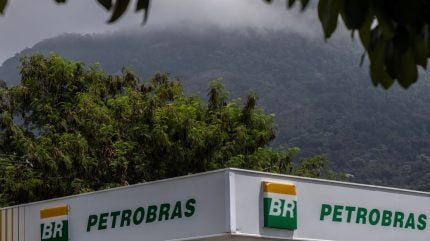
Brazilian state-owned oil company Petrobras announced a 38% decrease in its net recurring profit for the first quarter (Q1) of 2024 compared with the previous year.
The financial results released Monday fell short of analysts’ forecasts and the company’s dividend due to reduced sales volumes.
According to LSEG data, net recurring profit dropped to 23.9bn reais for the quarter ending in March, significantly below analysts’ estimate of 30.2bn reais.
The company attributed the results to a combination of factors including a worsened financial result due to exchange rate devaluation at the end of the period and a lower sales volume of oil and derivatives.
“The exchange rate devaluation of the real against the dollar, among other factors such as lower sales volumes of oil and derivatives, oil prices and diesel margin, had an impact,” said the company’s financial and investor relations director, Sergio Leite.
“When exchange rate devaluation occurs, there is a fluctuation in the financial statement due to the exchange rate variation that we recognise by accounting rules. However, this does not affect the company’s cash flow.”

US Tariffs are shifting - will you react or anticipate?
Don’t let policy changes catch you off guard. Stay proactive with real-time data and expert analysis.
By GlobalDataIn the period, Petrobras recorded an operating cash flow of 46.5bn reais, while adjusted earnings before interest, taxes, depreciation and amortisation (EBITDA) stood at 60bn reais. The company reduced its financial debt by $1.1bn in the quarter, reaching $27.7bn, the lowest since 2010. The gross debt, including leases, remained controlled at $61.8bn.
The company has approved a payout of 13.45bn reais in dividends and interest on equity to its shareholders, which is approximately 1.04 reais per common and non-voting share.
Oil, gas and byproducts sales totalled 2.7 million barrels of oil equivalent per day, a 3.7% decrease compared with the previous year. The variation can be attributed to several main factors including the increased production of the floating production storage and offloading units Almirante Barroso, P-71, Anna Nery, Anita Garibaldi and Sepetiba.
The company also said it began producing 19 new wells from complementary projects in the Campos (11) and Santos (8) basins.


